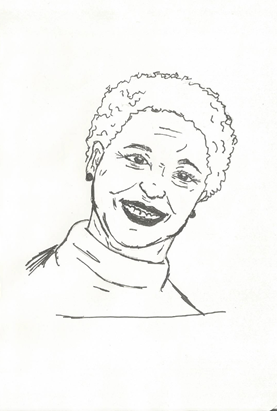by Marlise Matos
Translation by Anna Paula de Moraes Bennech Reviewed by Matheus Lucas Hebling Original publication: April 2nd, 2020 link
Despite the many changes that have occurred, we all know how to point out and understand the established gender roles, where women would be the “caregivers,” “housewives,” mainly responsible for homes and families.
Unfortunately, these roles can act against women in times of the COVID-19 pandemic, bringing them closer to danger and vulnerability. For instance, one simply must glance at any Brazilian hospital, Emergency Care Unit, or Health Center to realize that women are the vast majority of the health workforce. Wermelinger et al. (2010) identified the feminization of the health workforce by analyzing the Brazilian census data regarding its health workforce. Amid the graduated workers in this area, they are 90.39% among nurses, and 95.31% among nutritionists; however, they represent only 35.94% among physicians. Considering the technical level professionals, they are 77.88% of physiotherapy technicians and related techniques, 78.03% of nursing attendants and midwives, and 86.93% of nurse technicians and assistants. The Social Service situation is practically identical.

The data inform us that the WOMEN are right now in the front line combating and confronting COVID-19. It also tells us that they are still filling lower positions in the professional hierarchy in the health field. Hence, we ask ourselves: with whom are their children? When those women arrive home and cannot have direct contact with their own families, who takes care of these women and their children?
In the social isolation context, we also know that women are taking care of the required sanitizing duties as well as the work related to preparing family meals. It happens in parallel to accomplish remote work, the domestic work, and the entertainment of the confined children. In the communities and peripheries of Brazil, an immense country, women lead actions of mitigation and confrontation against the spread of COVID-19. They are mobilizing their communities for this war, taking risks, and placing themselves in even more vulnerable situations. We also grasp that domestic violence may intensify in confinement due to Coronavirus, and therefore we must act now against this phenomenon.
If women are on all the front lines combating this pandemic, why are they not at the core of decision-making processes, deliberating on the actions and paths to be taken?
Women are simply essential in the fight against the pandemic. Consequently, it is fundamental to ensure that there is a feminist and gender dimension in all responses. It is necessary and urgent to address sufficient resources to fulfill the needs of women and girls in this context, especially for the health and social service workers. Moreover, it is needed to be more attentive and alert to the escalation of gender violence as well as preventing it. In other words, it is urgent that women have power, being directly involved and actively participating in all phases of response and decision making regarding this pandemic, whether local, state, regional, national or international.
We, women, are capable of caring, and of acting critically toward transformation. The change we hope to see in the world, the post-COVID-19 civilization, however, involves the recognition and political-social protagonism of all us, women. The moment for this movement is now.
References
WERMELINGER, M. et al. “Feminilização do Mercado de Trabalho em Saúde no Brasil: focalizando a feminização”. Divulgação em Saúde para Debate, Rio de Janeiro, n. 45, p. 54-70, maio 2010.
Marlise Matos is an Associate Professor at the Department of Political Science and Coordinator of the Nucleus of Studies and Research on Women (NEPEM) at the Federal University of Minas Gerais (Universidade Federal de Minas Gerais – UFMG).







